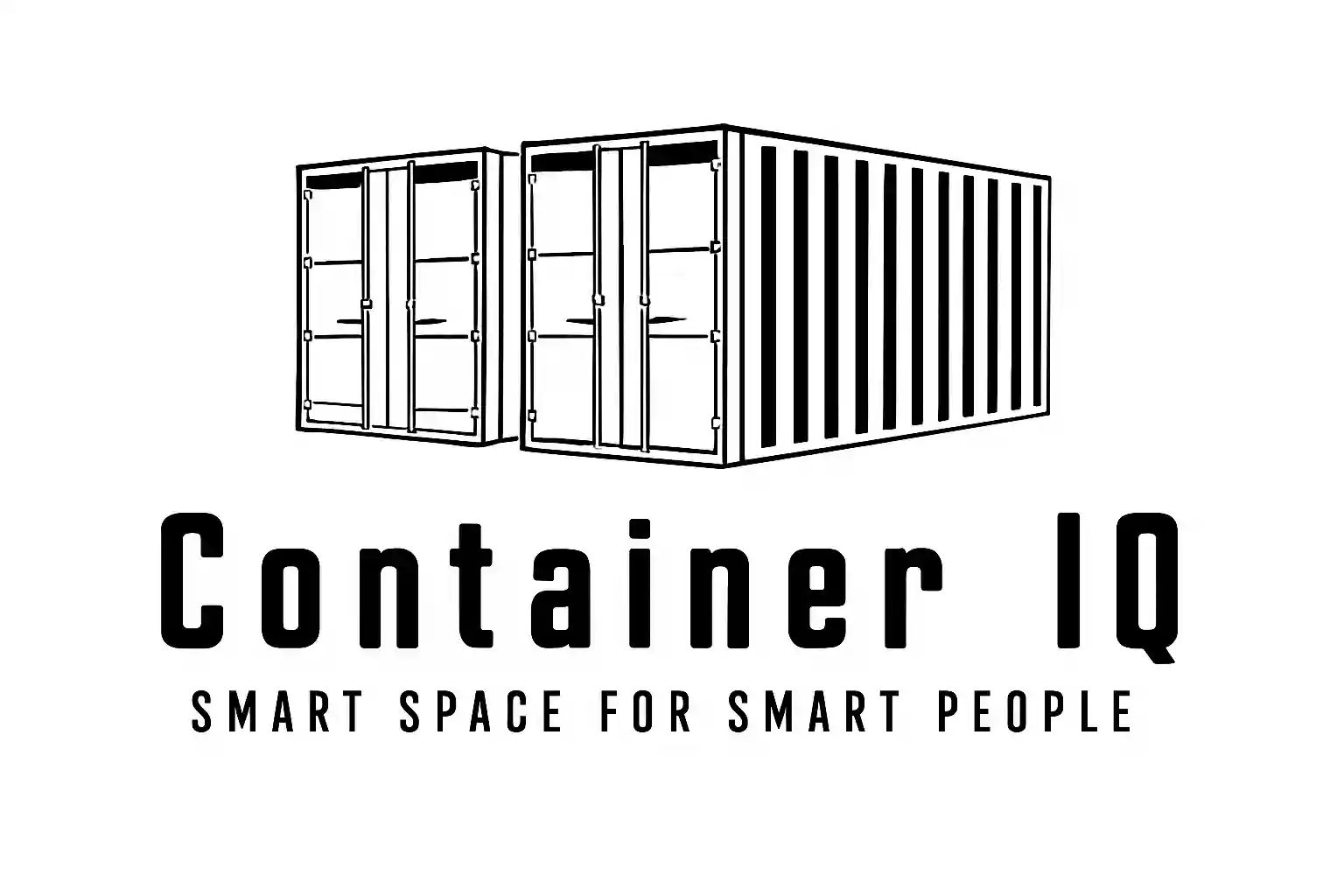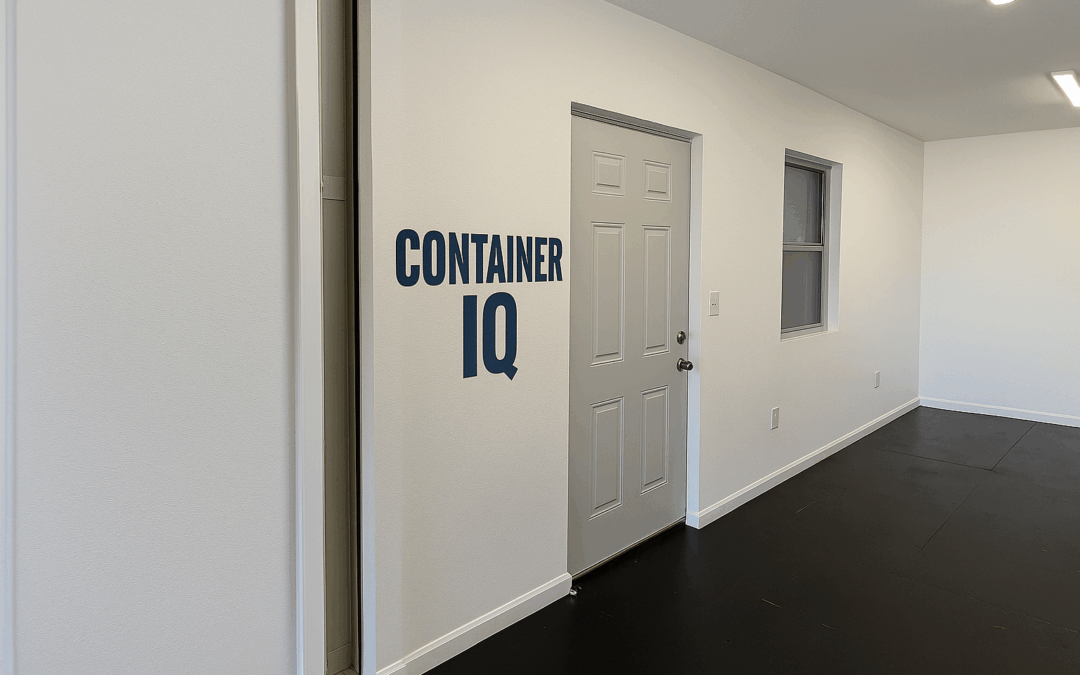Renting office container space in Florida has become an increasingly popular solution as the state’s economy continues to grow, fueled by a booming construction industry, rapid population growth, and a thriving tourism sector. Despite the rise of remote work, Florida remains a major hub for office demand, maintaining stable occupancy across key markets. However, with commercial rents climbing and traditional building costs becoming harder to justify, many businesses are now turning to more cost-effective and adaptable alternatives. Renting office container space in Florida offers the perfect balance of affordability and flexibility, making it ideal for industries like events, hospitality, and retail—sectors that often rely on temporary or pop-up locations to operate efficiently.
Renting Office Container Space in Florida- Key Take Away
Florida’s office market remains competitive, driving demand for flexible workspace solutions.
Shipping-container offices (usually 20′ or 40′ long) offer quick, ground-level workspaces without major construction. These units are insulated, climate-controlled, and built of heavy-duty steel for security and weather resistance.
Diverse Florida industries use containers: construction sites, farms, retail pop-ups, tourism/events venues, and even film shoots benefit from portable offices and storage.
Modern trends include smart/IOT features (remote monitoring, automated climate control) and solar-powered units. Some companies now sell “solar-powered” office containers that run off-grid. Hybrid live-work container designs are emerging as well.
Renting vs. buying: Rentals (often ~$115–300/month depending on size) offer low upfront cost and flexibility (e.g. short-term use or “test-driving” a size). Ownership builds equity and avoids lease limits on use. In the long run (multi-year use), buying may be cheaper.
When choosing a provider, look for transparent pricing and clear contracts (no hidden fees or inflated delivery charges). Ensure the company is established (especially in Florida) and can handle permitting and delivery.
Industry Uses of Container Offices
Shipping-container offices are versatile across Florida industries:
Construction: Portable offices are standard on building and infrastructure sites. Contractors use 20′–40′ container offices for on-site management, planning and crew meetings.
Agriculture: Farms and nurseries use container units as field offices, storage, or even hydroponic farms. Containers protect equipment and produce and can house climate-controlled workrooms on rural land.
Tourism & Events: Container pods appear at festivals, markets and parks. Food parks and retail villages use modified containers as kitchens and shops. Event planners also rent container offices or booths for temporary operations.
Remote/Home Offices: Homeowners and small businesses are adopting backyard container studios or detached offices for remote work and private meeting space.
Film & Media Production: Film crews often use container offices on-location as portable production offices, camera equipment rooms or dressing rooms.
Features & Customization of Container Offices
Transported on flatbeds and set at ground level, a 40′×8′ container offers about 320 ft² of workspace. Providers typically supply 20′ and 40′ units (and can arrange 10′ or 45′ models) to match different space needs. These offices are built from marine-grade corrugated steel to resist rust and impact. They come with features such as R-11 wall/ceiling insulation, electrical panels, and integrated HVAC to handle Florida’s heat. Security is also built-in with features like window bars, high-security locks, and robust construction.
Customization is virtually unlimited. Clients can add doors, windows, skylights, or large roll-up bays. Builders often install plumbing (sinks/toilets), kitchenettes, and specialty lighting. Solar panels and battery systems are available for off-grid power. In short, a container office can be tailored from a bare shell to a full turnkey suite: partition walls for multiple rooms, built-in desks, shelving, cabling for networks and phones, and any corporate branding desired.
Sustainability, Resilience and Permitting
Using shipping containers is inherently sustainable: it recycles steel that has already been produced. Converting a used container into an office repurposes materials that might otherwise sit idle. They are also energy-efficient when properly insulated and can earn sustainability credits for reuse.
Containers excel in Florida’s climate. Their steel shells are fire-resistant and can withstand hurricanes better than many wooden structures. Mobile office companies even offer optional storm-damage waivers covering winds, floods and other disasters. Some vendors highlight the use of containers in disaster relief operations, showcasing their resilience.
Permitting is a key consideration. In Florida, temporary containers (<180 days) typically require only a zoning permit, while anything kept longer needs a full building permit and must meet codes. In practice, short-term rentals are easier to permit. However, any long-term container office must comply with local building and wind codes. Good container providers can advise on these rules.
Smart, Solar and Live-Work Trends
The market is innovating beyond basic container offices. Smart technologies are being integrated: modern units can include IoT devices for remote monitoring of energy use, occupancy, or maintenance needs. Containers can now be equipped with the latest tech to maximize comfort and utility.
Solar integration is a big trend in sunny Florida. Companies have introduced solar-powered container offices – self-sufficient units with rooftop panels that generate all their electricity. These save on utility bills and allow off-grid deployment on remote sites. Some providers bundle solar with battery storage for overnight power.
There’s also growing interest in live-work hybrid containers: these combine an office space and a living area in one or stacked units. Although more common in Europe, a few U.S. developers are experimenting with tiny-home or apartment models that include an attached work module. As remote work lifestyles persist, such multi-use containers may become more common.
Choosing a Container Office Provider
When renting an office container, careful selection of the provider is crucial:
Reputation and Local Service: Prefer established companies with Florida operations. Local presence means they understand state regulations and can deliver quickly.
Transparent Pricing: Beware of quotes that seem too good to be true. Always ask what’s included (delivery, placement, pickup) and get charges in writing.
Equipment Condition and Features: Inspect sample units if possible. Ensure offices have proper insulation and A/C.
Permitting and Delivery: A good provider will guide you on permits. They should handle delivery and placement, and offer guidance on Florida wind-code compliance.
Red Flags: Watch for steep upfront deposits, unclear terms, or lack of customer service.
Customer Support: Favor providers offering responsive support and optional damage waivers for natural disasters.
Renting vs. Buying: Pros and Cons
Renting an office container is much like leasing business equipment—you pay a manageable monthly fee with minimal long-term commitment. Most providers require only a 1–3 month minimum, after which you can continue on a flexible month-to-month basis. This makes renting ideal for temporary projects, seasonal operations, or businesses testing out new locations. It also avoids a large upfront investment, and you have the freedom to upgrade, downsize, or return the unit as your needs evolve. To explore flexible options and get a custom quote, click here to get started.
However, renting doesn’t build equity. Over time, long-term rentals may become more expensive than an outright purchase. Rental agreements may also restrict certain customizations, and insurance coverage for damage isn’t always included.
On the other hand, buying a container office involves a higher initial cost but gives you full ownership and control. You can fully customize the unit to suit your exact requirements, and at the end of its use, you own a tangible asset with resale value. Buying is generally more cost-effective if you plan to use the space long-term, but it does require you to manage delivery, setup, and ongoing maintenance. Ownership is ideal when you’re confident in your long-term space needs and want the freedom to modify your workspace without restrictions.

